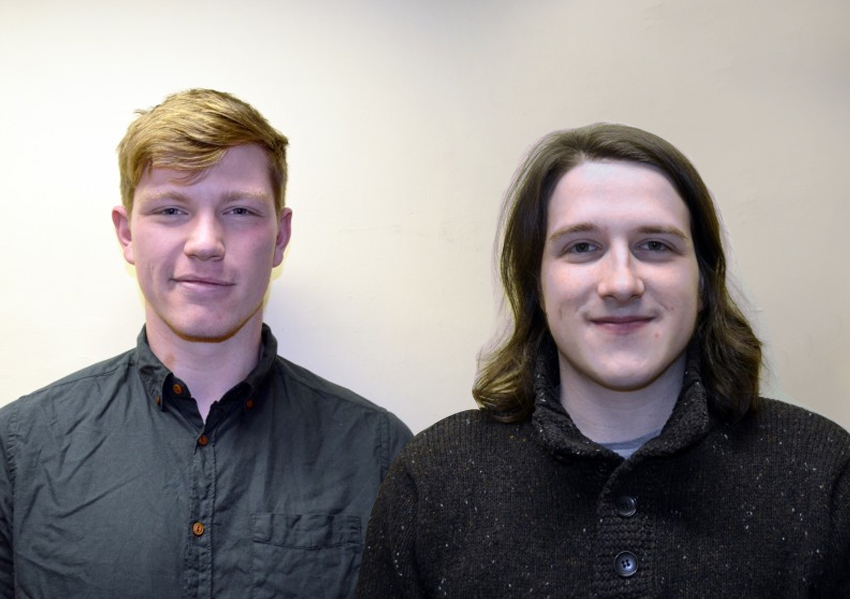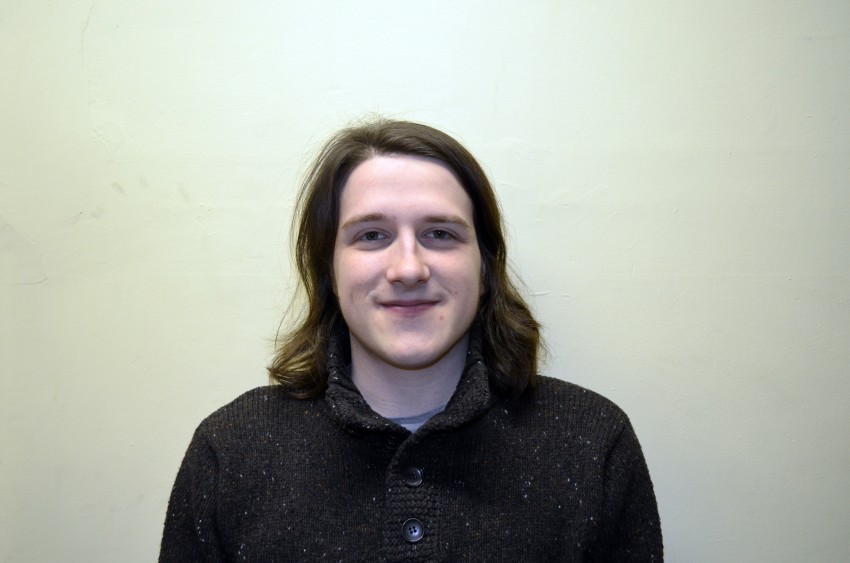Samuel Riggs:
Paul Glynn | Senior Staff Writer
Third-year English student Samuel Riggs from Carlow is one of two running for the role of Communications Officer in the Leadership Race. A self-described social media buff with a passion for journalism, Samuel is the current editor of The University Times’ Opinions section, and is also active with Trinity FM and Trinity TV. Riggs’ media and design credentials are fairly spread out over College’s spectrum of diverse student organisations: he has been the Public Relations Officer of both DU Food and Drink and QSoc, and edited the latter’s commemorative ‘Ne Plus Ultra’ magazine, awarded Best Publication at the 2013 CSC awards.
Riggs has identified a number of issues to address in his manifesto relating to the Union’s communication with the student body as well as The University Times. Citing the SU Impact Report, which noted that 46% of students were unaware of what the Union was campaigning for, or its stance on various issues, he plans to create an easier-to-use website for the Students’ Union. It will serve as a “hub” for Union information, containing updates about council actions and guidelines on how to bring motions and discussion topics to council, allowing students to become more familiar with how the SU represents them.
For The University Times, Riggs plans to create a system to clarify the roles of its staff – the various contributing writer, staff writer, deputy editor and editorial roles will be given solid parameters so that, he states, “future UT staff will know what’s expected of them, and will be able to fulfil their job to the best of their ability.” Other features he plans to introduce include a Health Science correspondent, as well as a dedicated UT style guide and “Masterclass” workshops.
Riggs also aims to improve the college’s methods of communicating with its students by assembling a committee of various student representatives to improve information flows between College and the student community, especially in the face of recent changes to the availability of certain student services and cuts to funding – according to him, “TCD is notoriously difficult for getting any kind of information from as regards possible fee increases, services being unavailable, [and] changes in funding.”
P.J. Moloney:
Clare Droney | Staff Writer
P. J Moloney, a fourth year Film Studies student, has been nominated for the position of Communications Officer in the upcoming sabbatical elections. Moloney, who is half-Irish, half-French, has a keen interest in cinema and he has been heavily involved in media and communications in College.
P.J. has held the position of Post-Production and Treasurer in Trinity TV, Editor of the Trinity Film Review and Secretary of the Film Society. He has made several short films during his time in Trinity and spent last summer working with the RTÉ Digital team learning about the strengths and weaknesses of digital communications. Moloney is currently Exhibitions Officer of the Film Society and Chair of Trinity Publications. This year he was also elected as a class rep, which he says has given him an insight into the running of the Students’ Union.
Regarding College as a whole, Moloney would like to see more work done by College authorities in providing accommodation for students as well as a better system for the evaluation of lecturers by students. Overall, Moloney believes that “we need a much better debate on how people, lecturers and students alike, can do interesting and innovative new things while teaching and studying in the college.”
Moloney believes that Communications is not just a one-way system, the S.U. speaking to students, but instead should be a platform for the S.U., students and the wider college community to communicate with each other. He believes that a central aspect in the development of a new communications strategy is the involvement of as many people as possible; “if we have learned anything from modern Internet communications it is that the best outcomes come from getting lots of people involved.”
If elected as Communications Officer, Moloney would like to see the S.U. move away from “a 20th century communications strategy focused mainly on newsprint and instead develop a 21st century multimedia communications strategy.” He hopes to lead the debate in the development of a new communications strategy in line with leading universities around the world.









